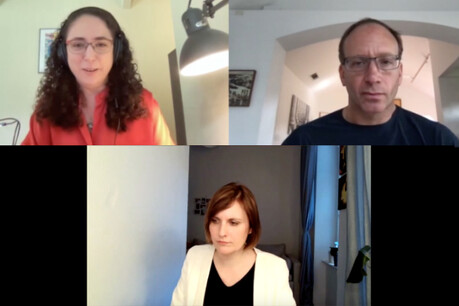Local and investigative journalists use AI-powered tools to save time and money and focus on what they do best: tell stories
How artificial intelligence can help solve journalism’s problems

investigative journalism

Local and investigative journalists use AI-powered tools to save time and money and focus on what they do best: tell stories

At Newsrewired this coming November, we will hear from four newsrooms that are hiring diverse talent because there are genuinely good business reasons to do so, like bolstering your reporting and being trusted by the public.
One of those practising this idea is Robyn Vinter, editor-in-chief, The Overtake, an investigative journalism website for millennials and Gen-Zers run by a team of reporters based in Leeds, Yorkshire.
In the first two years of running the publication, Vinter has built a part-time team of nine from scratch and created a platform which aspires to be “the opposite of the straight, white, middle-aged, middle-class mainstream media”.
Vinter spoke to Journalism.co.uk about The Overtake, the advantages of forming a diverse newsroom and what delegates can expect from hearing her speak at Newsrewired.
December’s news:rewired is fast approaching, and Journalism.co.uk is pleased to announce the training options for news:rewired+, a full day of practical workshops taking place the day after the conference (2 December), as well as new speakers joining us on 1 December to discuss new models in local media, techniques for international investigations, and other trends and innovations in digital journalism.
As always, Journalism.co.uk workshops are focused on gaining practical skills and hands-on experience – this December, learn more about social media content strategies, advanced online research techniques and social video.
The upcoming news:rewired conference and the full day of training will take place at the MSN UK offices, in Victoria, London.
Investigative journalism has long been the marker by which news organisations – and journalists – measure their worth.
“As a journalist your main tool is talking to people and asking the right questions of the right people,” said civic technologist and self-described “OpenGov and data journalism geek” Friedrich Lindenberg in a webinar on investigative journalism tools for the International Centre for Journalists last week.
“This is still true, but also you can ask the right questions with the right databases. You can ask the right questions with the right tools.”
Lindenberg listed an arsenal of tools the investigative journalist can equip themselves with. Here are some of the highlights.
Lindenberg described DocumentCloud as a “shared folder of documents”, offering different folders that can be used for various investigations, control over who can access which documents, the ability to annotate different parts of documents, search throughout and embed segments or entire documents.
Even better, DocumentCloud looks for “entities” – such as people, companies, countries, institutions – identifies them and makes them searchable, which is especially useful for legal documents that may stretch into hundreds of pages when you are only interested in a few key points.
DocumentCloud is run by IRE but Lindenberg encouraged journalists to contact him at SourceAfrica.net, where an open source version of the software is available.
This post contains presentations from session 3B, collaboration in investigative journalism, featuring Iain Overton, managing editor, Bureau of Investigative Journalism; Simon Perry, founder, Ventnor Blog; Paul Lewis, special projects editor, the Guardian and Christine Spolar, investigations and special projects editor, the Financial Times.
